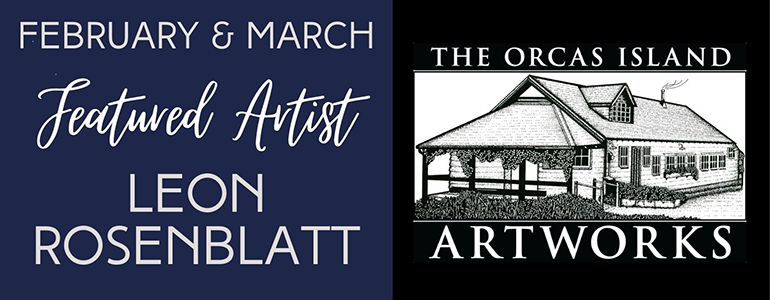What Columbus Saw
— by David Kobrin —
When I beheld
near-naked men,
and women,
And their children,
Who took Us,
And our Spanish Ships,
For the gods
they expected
We knew God’s grace
in granting us
This place
And all souls
upon it.
near-naked men,
and women,
And their children,
Who took Us,
And our Spanish Ships,
For the gods
they expected
We knew God’s grace
in granting us
This place
And all souls
upon it.
Who treated us
with kindness,
and civility
And servility
Befitting Christendom
Despite their barren souls
and heathen ways.
with kindness,
and civility
And servility
Befitting Christendom
Despite their barren souls
and heathen ways.
A timid people
as God formed them
Docile
and loving
Running
from us,
Warriors falling
when we meant
them
No harm.
as God formed them
Docile
and loving
Running
from us,
Warriors falling
when we meant
them
No harm.
See: the torn lace,
the pottery shard
the strip of colored cloth–
in return,
their Friendship.
the pottery shard
the strip of colored cloth–
in return,
their Friendship.
They have Gold galore;
They readily share,
Asking naught
in return.
They readily share,
Asking naught
in return.
They lack
Iron.
Iron.
I planted flags! Your Majesties,
with troops arrayed
And trumpet notes,
Shrill!
as befit this
with troops arrayed
And trumpet notes,
Shrill!
as befit this
Occasion, Brass
Reflecting the rising sun, God’s glory, and the power of
Your Kingdoms.
Reflecting the rising sun, God’s glory, and the power of
Your Kingdoms.
“These lands
These lands, and all the lands
that touch the waters
That touch this land
I now claim
For our Glorious
Majesties,
Ferdinand and
that touch the waters
That touch this land
I now claim
For our Glorious
Majesties,
Ferdinand and
Isabella,
True Servants of our Lord
Jesus Christ.”
True Servants of our Lord
Jesus Christ.”
And no one protesting
Among the Natives assembled
We sheathed our swords.
We sheathed our swords.
**If you are reading theOrcasonian for free, thank your fellow islanders. If you would like to support theOrcasonian CLICK HERE to set your modestly-priced, voluntary subscription. Otherwise, no worries; we’re happy to share with you.**








Emotive and visual.
How words evoke feelings.
Meaning, though, is more elusive.
Who’s an immigrant, who’s a native?
Who decides where to draw the line?
Who speaks “the truth?”
Barbarisim before arrival.
Barbarism upon arrival.
Barbarism after arrival.
While the former never justifies the latter, the “light of context” reveals that no purity was sullied.
Here’s a visual—
Imagine a World without exploration. Imagine a world that never saw the invention of modern diplomacy, the modern nation-state, representative democracy, the Scottish and Continental Enlightenments, the Cartesian tools of Deductive and Inductive reasoning, the Scientific Method, the advancement of Medicine, the invention of the World’s “isms,” the development of sophisticated Economic modeling to regulate interactions between people and society, the Exploration of Space, the discovery of the Cosmic Microwave Background as Electromagnetic Radiation remnants from our stardust primordial origins, our Quark soup, the recent launch of the TESS orbiting telescope in search of exoplanets, the coming launch in 2021 of the James Webb Telescope that will orbit around L-21 to follow up on already identified 4587 exoplanets—discovered by the Kepler telescope launched in 2009 (all NASA) —and the James Webb will also most importantly peer into the first 200-400 million years (of our 13+ billion year aged universe) to reveal the greatest secrets of our origins still hidden from us to this day.
These are but a short list of some of the good occassioned by the occidental world. We are berated daily about how bad we are…BUT…let it be known that:
It is olin our DNA to be a restless, exploratory species that will never stop, never rest, and never be but curious. We will err horribly and we will learn and do better. But we shall never wallow in shame but rather ponder from humility as we look out and upwards from whence we came. We’re literally stardust.
Perspective matters.
David’s poem is evocative of the words Columbus wrote in his journal, and Chris lauds the exploratory nature of humans and the progress it has brought. What is missing here is the reality of what Columbus’s “discovery” led to. He planted his flag, loudly claiming all lands he encountered. This was incomprehensible to the indigenous peoples, who didn’t believe in owning land. Then he demanded that the locals find him gold, and when they didn’t bring enough, anyone over the age of 14 had their hands cut off, and they bled to death. Eventually the foreigners either killed off or infected with smallpox and other diseases at least 90% of the indigenous people. Thus began the European colonization of the Americas. Native peoples were forced into slavery to work for the Spaniards, but unfortunately they died, often in as little as two years from working in mines in places like Bolivia.
So Europeans turned to another group of people to enslave: Africans. And so began the trans-Atlantic slave trade, taking the strongest people from Western Africa. Surprisingly to some, there were three great kingdoms in Western Africa, one after the other: Ghana, Mali, and then Songhai. Each became a strong power, and at one point, one of the kings went on a hajj or holy journey to Mecca. These kingdoms developed universities and hospitals, they welcomed scholars from all over the world, and they were just as advanced as European civilizations except for one thing: they didn’t have guns, and this is what led to the Europeans’ ability to capture slaves (and purchase other slaves, as African kingdoms did have slaves, though they weren’t necessarily slaves for life; they were often war captives or lawbreakers). These were not people taken from some backward society but civilized people, many of whom died on the horrible passage to America and the rest becoming traumatized. They were separated from their families, their communities, and their language.
While some Europeans might feel they have something to celebrate with Columbus, indigenous and African-American people do not. We can appreciate that Columbus was a crafty explorer, but he was a cruel, greedy man, as were most of the European explorers who followed him. Many of our cities have accepted this reality and no longer celebrate Columbus Day. Instead they have come to celebrate Indigenous People’s Day, lauding the people who originally populated the western hemisphere and who endured so much once Europeans arrived.
What an incredibly moving poem, David. As a fellow poet I have to say the line “They lack/Iron”, which comes at the very center of the poem, in many ways says it all. I am in awe. Thank you for sharing this with us. I also love knowing that your work is always well grounded in extensive historical research. Thank you!
David is right of course but i caution against the practice of using today’s standards and eyes to judge the distant past given such different contexts, challenges, ignorance, and commonly practiced traditions in that century.
Should we equally judge Pre-Columbian indigenous, inter-tribal slavery, —slavery among indigenous peoples throughout North and South America was common practice. Since slavery was a common institution among various Pre-Columbian indigenous peoples of the Americas should we now shun the celebration of Indigenous peoples day as we do Columbus day?
What about the mass genocides of children by Aztecs, the young skills of whom continue to be unearthed below Mexico City even today—(Pre-European arrival).
Even more shocking, should we condemn Native Americans for joining Europeans in holding African Slaves once contact with the West was established and after they learned of our immoral practice of African slavery?— (see McLoughlin, William G. (1974-01-01). “Red Indians, Black Slavery and White Racism: America’s Slaveholding Indians”. American Quarterly. 26 (4): 367–385)
My point is judging the distant past with present eyes fails the test of contextual honesty and reveals the difficulty of revisionist redux history re-writes.
Seeing the bigger occidental human development picture, being honest in reviewing the pre-european Americas (which was never a shangri-la), and understanding that indigenous peoples are themselves Americas’ first Asian immigrants raises complications when interpreting the past from the vantage point of the present where agendas might be present.
The accomplishments of Discovery and Exploration by the Occidental world accounts for the lion-share of all human progress even after allowing for the truism that we stand on the shoulders of those who precede us —including the great ancient Middle Kingdom of China (1000 BCE), the Arabian peninsula, Greater Assyria, and Persia.
A more complete and accurate review would certainly place the Occidental world as the largest cumulative amassing of human information and discovery since Homo Erectus left Africa close to 2 million years ago.
Hence my focus on perspective instead of attempting to compare or justify atrocities from all sides, which seems futile and overlooks the much larger human progress made.
Oh, Chris, how I look forward to talking with you in person.
Likewise, Eleanor. In the end, as I’m fond of saying, we’re all cut from the same cloth and need to see ourselves in each other as we make our way through these unchartered waters.
The perfect poem for a day I wish we in WA State would stop “celebrating!” I will declare that day, from now on, for me personally, to be an honoring of all Indigenous peoples everywhere who survived, despite thousands of years of colonizations, and kept their languages and cultures alive against great odds and horrendous abuses.
The point of recognizing what actually happened is not so much to judge (though I find atrocities throughout history to be hideous) as to understand what really happened, because that has an impact on today, which affects our decisions for tomorrow. This is what I used to teach my students. That is why it is written that whoever controls history actually controls the future.
Those were lucky students indeed, David T.
I had a graduate professor in History who impressed upon us that he better understood the present the further back he went in history.